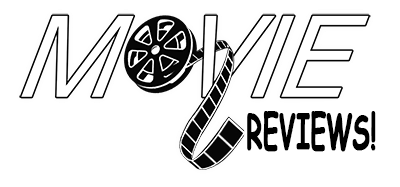| I'm not sure if this is the right interpretation. Or: (more to the point?) whether or not you go in knowing that the contract between movie and audience has been broken, makes all that much of a difference. I think you can give this a flat, face-value reading — character actor Scott Shepherd, as the weirdest anti-terrorism NYPD officer you've ever seen, has an almost exclusively emotional affair with Stephanie, played by relative newcomer Stephanie Hayes (both actors are amazing) — and have a fine time. But in the various and plentiful (despite the microscopic 72-minute run-time) threads, I saw an opening to different ways of thinking about, not just this film, but all movies. A bold statement for sure, BUT. Hear me out. |
This is an extremely writerly movie. It's wordy to the utmost degree, which I normally find irksome, but it works here because it's all in service of the suspiciously meta grift that it pulls off beautifully. (The closest comparison I can make is the early work of Yorgos Lanthimos, in so much as how that dialogue is purposefully stifled to highlight the conceit that is acting, it's injected with a kind of 90s-esque jargon here with its alternating overtly cool and sappy tones.) This is never more evident than when the sound cuts off during a flashback in the sole scene Chloë Sevigny is in. This bizarre sequence is a good jumping-off point in terms of unpacking the metaphorical elements; it almost seems to be asking — alongside Gerard's profession — what if acting/theater/PERFORMANCE, in all that it encompasses, was more a form of terrorism than escapism? (Try thinking of that word "terrorism" in the most abstract way, please.) Movies as just a separate hell diverting our attention, briefly, away from the "real" hell of everyday life. In all the many words we hear this is, naturally, never tackled directly. But perhaps you can see it, glimpse it, in the quick immolation of a screenplay (complete with a very telling cigarette burn on the 16mm film stock)...

After transitioning through various places and times — each, again, their own little window (I feel) into potential 'correct' interpretations of what's happening (if you even care to look, or care to care about any of that stuff)— we land on Stephanie, her hair now cut short, boyish, telling a story via Skype about a pig and a little girl—no, let's make it a little boy—to a man and child, who we assume is her daughter. The story is made to seem like it's off the cuff, but again, of course it isn't, dummy; these are just more lines on the page, spared from that great equalizer: fire. This pig story is about how a talking pig lures the boy into the woods but then suddenly becomes a regular pig-style pig. It feels like a metaphor for the movie to a degree: you're drawn in by performance only to have the wool pulled over your eyes in the end, unsure of what just happened and, more importantly, why? And why am I now just realizing that this has always been the case? Volunteers for the slaughter, ad nauseam, in perpetuity, etc. But asking those questions is what the movie is about. What purpose could purely passive entertainment serve in this modern world? The daughter falls asleep and she's cut off by the man on the computer before she can finish the story.
CHRONOLOGICALLY
⫷ EPISODE 709 - (YOU ARE HERE) - EPISODE 711 ⫸
⫷ EPISODE 709 - (YOU ARE HERE) - EPISODE 711 ⫸
Slow Machine is an 2020 American thriller film, directed by Joe DeNardo and Paul Felten, from a screenplay by Felten. It stars Stephanie Hayes, Chloë Sevigny, Scott Shepherd, Eleanor Friedberger, Ean Sheeny and Emily Tremaine. Slow Machine had its world premiere at the International Film Festival Rotterdam and was theatrically by Grasshopper Film. It was released on January 22, 2020.


0 comments:
Post a Comment